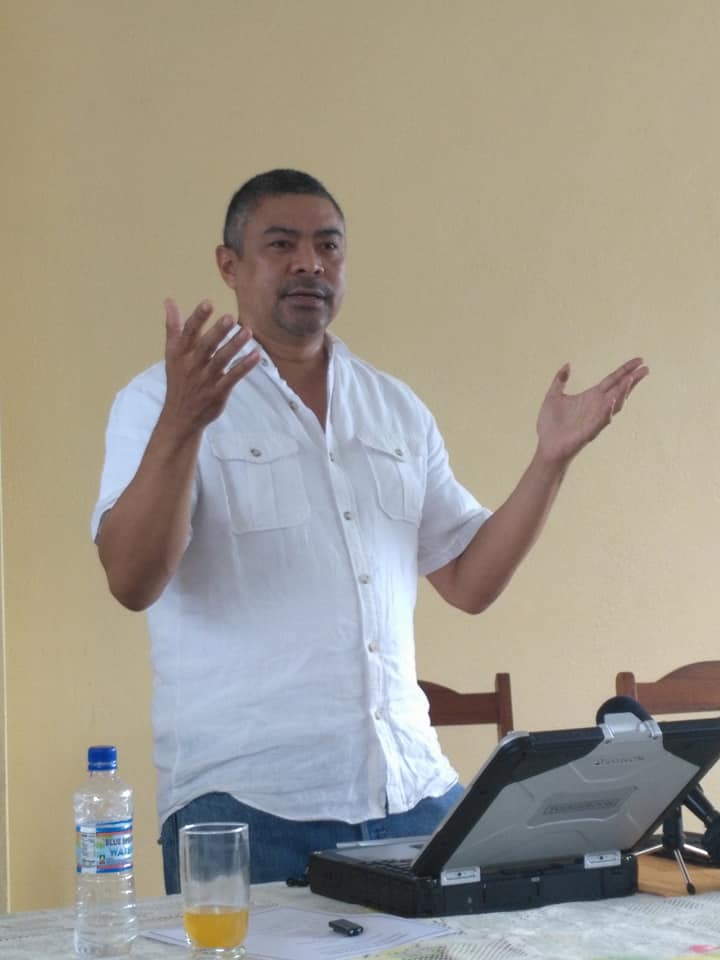
Villagers of Santa Rosa and Islands, Moruca Sub-district, Barima/Waini, Region One are well informed about developments in the Oil and Gas sector.
Village leaders were given the opportunity to have their concerns addressed as well as seek clarifications when a team led by Minister within the Ministry of Indigenous Peoples’ Affairs Valerie Garrido-Lowe recently visited the area.
Minister Garrido-Lowe during a workshop to introduce a Village Improvement Plan (V.I.P) a crucial component of the Ministry’s Development Programs to Santa Rosa’s eleven villages and satellites said this is the opportune time to share vital information on this sector when leaders meet to formulate plans for the future development of their respective villages and communities.
She said it is her role as the Minister to ensure the indigenous people are included in every aspect of development, therefore ensuring a resource person is included on her team remains a top priority.
Minister Garrido-Lowe said based on the knowledge shared villages and communities will be better able to strategize for their own development.
“This is the forum where you can develop those plans in anticipation of the proceeds starting 20/20. The indigenous peoples will never be left out. There must be equal opportunities and equity and as I said this government is a caring government”.
Deputy Director of the Petroleum Department in the Ministry of Natural Resources Nicholas Chuck-A-Sang was among the team members.
Among the questions raised included security, oil spillage, job opportunities, how can villages capitalize on financial and other resources and royalties.
Toshao of Santa Rosa and Islands Sherwin Abrams asked the Deputy Director to explain to leaders and villagers the capabilities of the oil company to deal with a situation in the advent of an oil spill.
Chuck-A-Sang explained that there is a 10 percent chance of oil reaching the coast since “the oil that we have is called the sweet light crude, very high quality oil which means it is closer to gasoline or diesel… and given the fact that the rigs are about 160 miles offshore that oil is mostly likely to evaporate before it hits the coast since its very volatile, so we have that in our favour”.
Chuck-A-Sang also explained that the Environmental Protection Agency’s (EPA) has a “polluter pays principle” where it’s mandatory for oil companies to have contingencies in place in the eventuality of an oil spill.
“This essentially means that Exxon Mobile or any one of the oil companies, they have the responsibility to do that clean up whenever it occurs, they have the duty to prevent it from happening in the first place, they have to make sure that it never happens, but should it happen in an unlikely event they have to have provisions in place to ensure that that oil is dissipated or collected before it hits the coast and to that extent we have seen a lot of drills by them we’ve seen a lot of equipment and there’s substantial amount of resources that are put aside for dealing with oil and gas spills”, Chuck-A-Sang explained.
He also reminded that Government is developing a National Oil Spill Response Strategy which will be led by the Guyana Civil Defence Commission (CDC).
Meanwhile, responding to a question on the prudent management of our natural resource Chuck-A-Sang noted that “Guyana is fortunate to be guided by industry leaders in developing Guyana’s oil and gas sector and we’re starting at a point where we can make everything fresh, brilliant, best practice of today and all of that, so it is a great opportunity for us to get it right, certainly with public consultation.”
He posited that the oil and gas sector will be a “huge money earner” for the country and encouraged the labour force to get in readiness with the necessary skills in order capitalize on the vast opportunities that will be made available.

